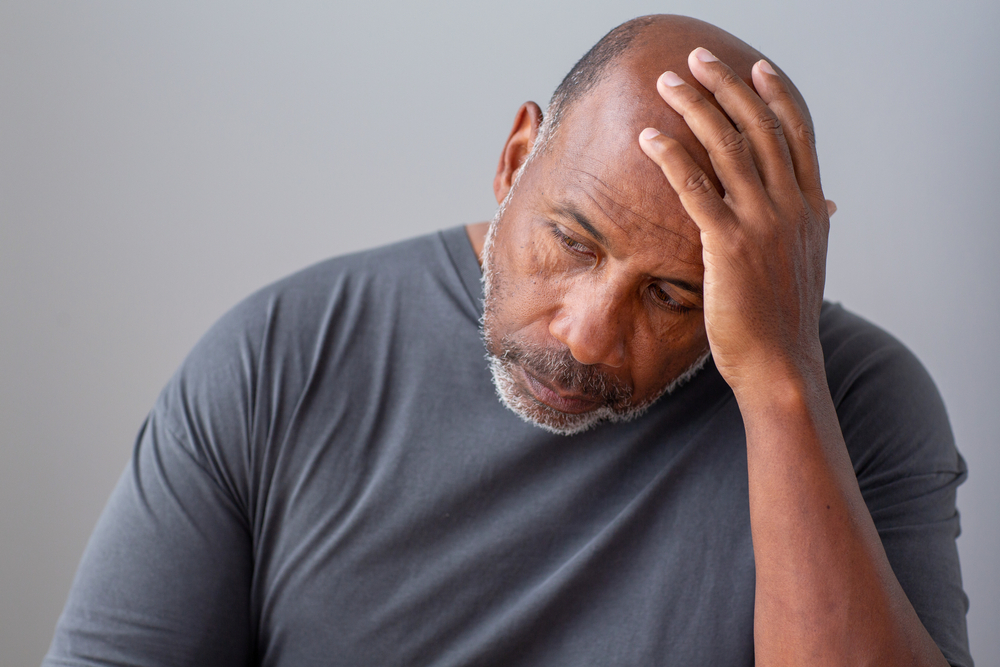As men age, a myriad of physical, emotional and social changes occur that can contribute to depression. While aging is a natural part of life, its impact on mental health is profound, particularly for men. Depression in older men is often overlooked or misunderstood, leading to untreated symptoms and a decline in overall well-being. Understanding the reasons behind this phenomenon is crucial in addressing and mitigating its effects.
Understanding male depression
Depression in men often goes undiagnosed because men are less likely to seek help or discuss their emotional challenges openly. The societal expectation for men to remain stoic and strong — even in the face of adversity — can prevent them from acknowledging their mental health struggles. As they age, these unspoken battles can intensify, leading to a deeper sense of isolation and despair.
The impact of physical health decline
One of the significant contributors to depression in older men is the natural decline in physical health. As men age, they may experience chronic illnesses, reduced mobility and a general decline in physical capabilities. This deterioration can lead to feelings of helplessness and frustration, especially for those who once prided themselves on their physical strength and independence.
Moreover, conditions such as heart disease, diabetes and arthritis are more prevalent in older men and can exacerbate depressive symptoms. The pain and discomfort associated with these illnesses — combined with the fear of losing one’s autonomy — can create a vicious cycle of worsening mental health.
The role of hormonal changes
Testosterone levels naturally decrease as men age, leading to various physical and emotional changes. Low testosterone can contribute to fatigue, irritability and a decreased sense of well-being. These symptoms can mimic or exacerbate depression, making it challenging to distinguish between the two.
Additionally, hormonal changes can affect sleep patterns, energy levels and sexual health, all of which play a role in a man’s mental state. The combination of these factors can lead to a significant decline in mood and overall quality of life.
Social isolation and loneliness
As men grow older, they may face increased social isolation. Retirement, the loss of loved ones and children moving away can all contribute to a reduced social circle. For many men, work provided not only financial stability but also a sense of purpose and social interaction. Without these daily connections, older men may struggle to find new ways to engage with others and maintain a sense of community.
Loneliness is a significant risk factor for depression, and as men age, they may find it more challenging to form new relationships or maintain existing ones. The emotional toll of losing friends or a spouse can be overwhelming, leading to a deep sense of grief and depression.
The psychological impact of retirement
Retirement — while often seen as a time of relaxation and freedom — can also be a source of stress and depression for many men. The sudden shift from a structured, purpose-driven life to one with more free time can be disorienting. Men who identified strongly with their careers may struggle with feelings of worthlessness or a lack of purpose after retirement.
This transition can lead to a loss of self-identity and a sense of redundancy, contributing to depressive feelings. The absence of daily routines and goals can make it difficult for men to find new meaning in their lives, leading to a decline in mental health.
The burden of unresolved emotional issues
As men age, they may reflect more on their past, including unresolved emotional issues and regrets. These unresolved feelings can resurface with a vengeance, leading to depression. Whether it’s the guilt of missed opportunities, unresolved conflicts or the trauma of past experiences, these emotions can weigh heavily on an aging man’s mind.
The stigma around seeking mental health support often prevents men from addressing these issues earlier in life. As they age, the accumulation of these unresolved emotions can become overwhelming, contributing to a sense of hopelessness and despair.
The fear of mortality
With age comes an increased awareness of mortality. The realization that life is finite can be a daunting thought, leading to existential questions and fears. For some men, this awareness can trigger a depressive state as they grapple with the meaning of life, their accomplishments and the legacy they will leave behind.
The fear of death and the unknown can be particularly intense for those who have not previously confronted these thoughts. This fear can lead to anxiety, depression and a profound sense of loss as they approach the later stages of life.
Coping with depression in older men
Recognizing the signs of depression in older men is the first step toward providing the necessary support and treatment. It’s important for family members, friends and health care providers to be vigilant and encourage open discussions about mental health.
The importance of seeking help
Encouraging men to seek help and providing them with access to mental health resources is crucial. Therapy, medication and lifestyle changes can all play a role in managing depression. It’s essential to break down the stigma associated with mental health issues — particularly in older men — and to promote the idea that seeking help is a sign of strength, not weakness.
Staying physically active
Regular physical activity can have a significant impact on mental health. Exercise releases endorphins — which are natural mood boosters — and can also improve sleep, reduce stress and increase energy levels. Encouraging older men to stay active, whether through walking, swimming or other forms of exercise, can help combat depression.
Maintaining social connections
Staying socially connected is vital for mental health. Encouraging older men to maintain their relationships, join clubs, volunteer or find other ways to engage with their community can help reduce feelings of loneliness and isolation. These connections provide a support system and can significantly improve one’s outlook on life.
Acknowledging and addressing male depression
Depression in older men is a complex and multifaceted issue, influenced by physical, emotional and social factors. As men age, the challenges they face can lead to a decline in mental health, making it crucial to recognize the signs and provide appropriate support.
By addressing the stigma around male depression, encouraging open discussions and providing access to resources, we can help older men navigate this challenging phase of life with dignity and strength. It’s essential to remember that depression is not a natural part of aging, and with the right support, older men can enjoy fulfilling and meaningful lives.
The key to combating depression in older men lies in understanding the unique challenges they face and taking proactive steps to support their mental health. With the right care and attention, it’s possible to turn the tide on male depression and help men live their later years with joy and purpose.
This story was created using AI technology.
















